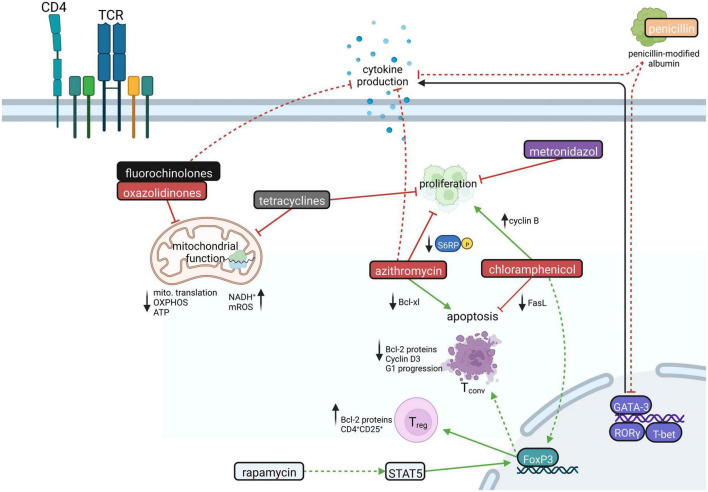FIGURE 2.
The influence of antibiotics on CD4+ T cells. CD4+ T cell proliferation is inhibited by tetracycline, azithromycin, and metronidazole. Chloramphenicol, in turn, forces proliferation by increasing cyclin B expression. Azithromycin, favoring the downregulation of the antiapoptotic Bcl-xl protein, increases CD4+ T cell apoptosis, whereas chloramphenicol hampers apoptosis by downregulating Fas ligand. Antibiotics like fluorochinolones, tetracyclines, and oxazolidinones inhibit mitochondrial function leading to decreased mitochondrial translation and ATP production via OXPHOS and increased levels of NADH+ and mitochondrial reactive oxygen species (mROS). Moreover, antibiotics influence important transcription factors in various ways. GATA-3 is downregulated by penicillin, while chloramphenicol treatment leads to FoxP3 upregulation. Rapamycin likewise induces the upregulation of FoxP3, which promotes the generation of CD4+CD25+ regulatory T cells (Treg) while conventional T cells (Tconv) are driven to apoptosis. Moreover, fluorochinolones, azithromycin, and penicillin could lead to decreased production of CD4+ T cell effector cytokines. Created with BioRender.com.

